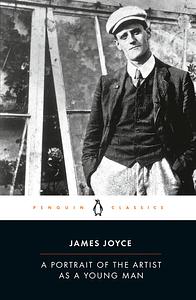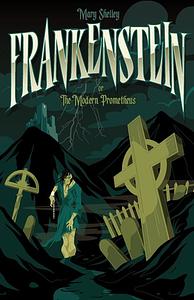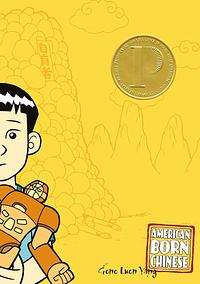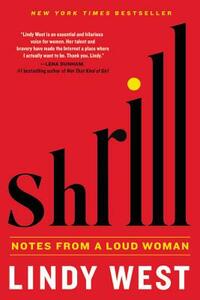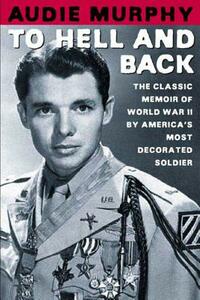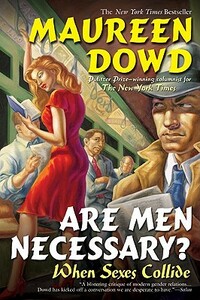Take a photo of a barcode or cover
kevin_shepherd's Reviews (563)
“When the soul of a man is born in this country there are nets flung at it to hold it back from flight. You talk to me of nationality, language, religion. I shall try to fly by those nets.”
Joyce, in this fictionalized autobiography, recounts his close brush with the pitfalls of piety.
After hearing a particularly graphic sermon on the wages of sin, an oration of hellfire and brimstone that would have made Pat Robertson proud, young Stephen Dedalus (Joyce’s alter ego) decides to amend his ways. He becomes so devout and pious that a vocation of Catholic priesthood is suggested. But, before Dedalus has a chance to diddle any alter boys, he has an epiphany of reason.
“I will not serve that in which I no longer believe, whether it call itself my home, my fatherland, or my church: and I will try to express myself in some mode of life or art as freely as I can and as wholly as I can, using for my defence the only arms I allow myself to use — silence, exile and cunning.”
When I read that this was Joyce’s first novel I was flabbergasted. This has the polish and panache of a much more experienced writer. Yes, there’s a fixation on flatulence, but there’s also a disarming honesty in Joyce’s stream-of-consciousness style. I personally found this much more palatable and accessible than Ulysses.
Joyce, in this fictionalized autobiography, recounts his close brush with the pitfalls of piety.
After hearing a particularly graphic sermon on the wages of sin, an oration of hellfire and brimstone that would have made Pat Robertson proud, young Stephen Dedalus (Joyce’s alter ego) decides to amend his ways. He becomes so devout and pious that a vocation of Catholic priesthood is suggested. But, before Dedalus has a chance to diddle any alter boys, he has an epiphany of reason.
“I will not serve that in which I no longer believe, whether it call itself my home, my fatherland, or my church: and I will try to express myself in some mode of life or art as freely as I can and as wholly as I can, using for my defence the only arms I allow myself to use — silence, exile and cunning.”
When I read that this was Joyce’s first novel I was flabbergasted. This has the polish and panache of a much more experienced writer. Yes, there’s a fixation on flatulence, but there’s also a disarming honesty in Joyce’s stream-of-consciousness style. I personally found this much more palatable and accessible than Ulysses.
"It was on a dreary night of November, that I beheld the accomplishment of my toils. With an anxiety that almost amounted to agony, I collected the instruments of life around me, that I might infuse a spark of being into the lifeless thing that lay at my feet. It was already one in the morning; the rain pattered dismally against the panes, and my candle was nearly burnt out, when, by the glimmer of the half-extinguished light, I saw the dull yellow eye of the creature open; it breathed hard, and a convulsive motion agitated its limbs."
I hath taken every precaution to compose my review as such, in the 19th century vernacular of which Frankenstein was first conceived. My hand and heart ever on watch to prevent artifice; or perhaps to command it. By these means and no others I gained a degree of tranquility. Indeed I, with thumb to iPhone typing out these words of praise, became the bearer of blissful countenance; the word itself I had to google, for 'countenance' hath fallen out of favor long ago. I reveled in the gothic outlay of Shelley's prose; her manner and composition ladled an eerie atmosphere, congruent to the tale at hand, over my over-active imagination. Thus I discovered that the monstrosity contained herein was many times more wretched than that of Whale and Karloff and I was taken back by the complexity of plot and the utter darkness that permeates these pages. There is a genius here that was, in conception, far ahead of its time, even if, in practice, it was very much a product of its time. To Mary Wollstonecraft Shelley, I doff my cap.
I hath taken every precaution to compose my review as such, in the 19th century vernacular of which Frankenstein was first conceived. My hand and heart ever on watch to prevent artifice; or perhaps to command it. By these means and no others I gained a degree of tranquility. Indeed I, with thumb to iPhone typing out these words of praise, became the bearer of blissful countenance; the word itself I had to google, for 'countenance' hath fallen out of favor long ago. I reveled in the gothic outlay of Shelley's prose; her manner and composition ladled an eerie atmosphere, congruent to the tale at hand, over my over-active imagination. Thus I discovered that the monstrosity contained herein was many times more wretched than that of Whale and Karloff and I was taken back by the complexity of plot and the utter darkness that permeates these pages. There is a genius here that was, in conception, far ahead of its time, even if, in practice, it was very much a product of its time. To Mary Wollstonecraft Shelley, I doff my cap.
What could possibly go wrong in a universe where scientists are rock stars and aspirations in neurobiology & metaphysics trump snare drums and electric guitars...
Welcome to the world of Nowhere Men. Here it's Dade, Simon, Emerson & Thomas instead of John, Paul, George & Ringo but the vibe of sex and drugs and bad-behavior is essentially the same. The art is spectacular. The story is smart and cerebral and, to the dismay of graphic "purists," a little wordy. Still, it works.
X-Men on Acid. A magical mystery tour.
Welcome to the world of Nowhere Men. Here it's Dade, Simon, Emerson & Thomas instead of John, Paul, George & Ringo but the vibe of sex and drugs and bad-behavior is essentially the same. The art is spectacular. The story is smart and cerebral and, to the dismay of graphic "purists," a little wordy. Still, it works.
X-Men on Acid. A magical mystery tour.
Lurid incest, mob style murder, domestic violence, and implied animal cruelty - all elements of this Martin Amis "mischievous comedy." Okay, I admittedly allowed myself a tepid giggle here and there, but my advice is to wade into Lionel Asbo without the expectation of having your funny bone tickled. The dark bits far outnumber the laughs.
*Winner of the Michaell Printz Award for Excellence in Young Adult Literature.
Gene Luen Yang lays out the coming-of-age odyssey of Chinese-American Jin Wang in three distinct vignettes. There's the Monkey King, Jin's mythical heritage. There's Chin-Kee, the offensive racist stereotype (see also: Mickey Rooney in Breakfast at Tiffany's). And then there's just Jin himself, with his insecurities and his angst and his best friend, Taiwanese immigrant Wei-Chen Sun.
Assimilation is a complicated process, especially when one is struggling to maintain a sense of cultural identity. Yang's approach to telling this story is unique and imaginative and fun to read. This is self-deprecating humor with purpose and heart.
Gene Luen Yang lays out the coming-of-age odyssey of Chinese-American Jin Wang in three distinct vignettes. There's the Monkey King, Jin's mythical heritage. There's Chin-Kee, the offensive racist stereotype (see also: Mickey Rooney in Breakfast at Tiffany's). And then there's just Jin himself, with his insecurities and his angst and his best friend, Taiwanese immigrant Wei-Chen Sun.
Assimilation is a complicated process, especially when one is struggling to maintain a sense of cultural identity. Yang's approach to telling this story is unique and imaginative and fun to read. This is self-deprecating humor with purpose and heart.
"...what if, just for a moment, one tried to classify something as anti-American for its own sake? My nomination would go to Pat Robertson, who appeared on television in the immediate aftermath of the September 11 atrocity and declared that the mass murder in New York and Washington and Pennsylvania was a divine punishment for a society that indulged secularism, pornography, and homosexual conduct. Here is a man who quite evidently dislikes his own society and sympathizes, not all that covertly, with those who would use violence and fanaticism to destroy it. He dislikes this society, furthermore, for the very things that it tends to advertise about itself, namely [freedom] and variety. If this is not anti-American then the term is truly meaningless."
A collection of more than twenty articles and essays written by Christopher Hitchens on the U.S. military involvement in Iraq, the first written in November, 2002, roughly four months before then President George W. Bush ordered the assault on Baghdad. The last essay was written in April, 2003 as the war was being (theoretically) concluded.
While I concede that it is almost impossible to write history in the present tense, even now with over fifteen years of accumulated hindsight, it's hard to argue with Hitchens' take on what transpired. His rationale was sound and firmly grounded - as it always was.
Beyond the bottomless pit of American rhetoric and controversial foreign policy, what A Long Short War highlights for me is the resolve that Christopher Hitchens had for going wherever his enormous brain led him, with little or no regard for political left/right. He confronted idiocracy wherever he found it and reminded us that the lesser evils are indeed occasionally necessary. Even when I disagree with his opinions (which is rare), I am fully cognizant of the high probability that I am the one who is wrong.
A collection of more than twenty articles and essays written by Christopher Hitchens on the U.S. military involvement in Iraq, the first written in November, 2002, roughly four months before then President George W. Bush ordered the assault on Baghdad. The last essay was written in April, 2003 as the war was being (theoretically) concluded.
While I concede that it is almost impossible to write history in the present tense, even now with over fifteen years of accumulated hindsight, it's hard to argue with Hitchens' take on what transpired. His rationale was sound and firmly grounded - as it always was.
Beyond the bottomless pit of American rhetoric and controversial foreign policy, what A Long Short War highlights for me is the resolve that Christopher Hitchens had for going wherever his enormous brain led him, with little or no regard for political left/right. He confronted idiocracy wherever he found it and reminded us that the lesser evils are indeed occasionally necessary. Even when I disagree with his opinions (which is rare), I am fully cognizant of the high probability that I am the one who is wrong.
I am incredibly, incredibly lucky to have someone in my life who has opened my eyes to the concept of body positivity, to the existence of rape culture, and to the flippant misogyny that permeates contemporary society. That being said, I am also acutely aware of my empathetic limitations. No matter how much I care about social injustice and bias I am never going to fully understand what it's like to be female in America (no more so than I'll know what it's like to be black or gay or muslim). Even Shrill, as fantastic as it is, couldn't put me in those shoes, but it afforded me a perspective that only an intelligent, deeply personal, self-deprecating dissertation could provide.
Lindy West may not have been the first to open my eyes, but she certainly broadened my perspective and refueled my activism.
Lindy West may not have been the first to open my eyes, but she certainly broadened my perspective and refueled my activism.
"Daylight reveals that the tree above us is filled with ripe cherries. We are thinking of risking our lives for the fruit when Brandon gets a bright idea. He lies on his back and with bursts from his tommy gun clips off branches of the tree. They fall onto our hole; and we eat."
I was immediately taken back by the humanity of Murphy's experience. The gallows humor and camaraderie seem at odds with the saturation of blood and violence. It is this element, the banter between brothers, that gives To Hell and Back its broad appeal. You don't have to be a WWII historian to latch on to Audie's story. Even after 70 years his courage is still remarkable and his story is still inspiring.
I was immediately taken back by the humanity of Murphy's experience. The gallows humor and camaraderie seem at odds with the saturation of blood and violence. It is this element, the banter between brothers, that gives To Hell and Back its broad appeal. You don't have to be a WWII historian to latch on to Audie's story. Even after 70 years his courage is still remarkable and his story is still inspiring.
Yes Burroughs' Naked Lunch is vile and obscene and utterly disgusting, but so is the terminal opioid addiction it conveys. Reading this novel was, at times, like trudging through a swamp filled with raw sewage and rancid medical waste ~ in my bare feet. It's as though the author made a list of the most repugnant things in the universe, things like racism and pedophilia and festering boils of green pus. Then he endeavored to see how many ways he could eloquently insert those things into a sentence. And then how many of those sentences he could coherently cram into a paragraph. And then how many of those paragraphs he could string together to form vignettes.
If good art elicits a visceral and emotional response, then Naked Lunch is good art. 'Just don't read it aloud with children in the room, and don't recommend it to your mother, and don't eat for at least 30 minutes prior.
If good art elicits a visceral and emotional response, then Naked Lunch is good art. 'Just don't read it aloud with children in the room, and don't recommend it to your mother, and don't eat for at least 30 minutes prior.
I'm not sure where to start. My thoughts on Are Men Necessary? are about as scattered as its premise. This is a cluster-cuss of politics, Hollywood fashion, evolutionary biology, cosmetic surgery, pop-psychology, pop-culture, and Darwinian anthropology. And it is all laid out in a stream of consciousness interspersed with conversational snippets from dear friends, former colleagues, past acquaintances and Maureen's mom. This has everything to do with Dowd's take on contemporary feminism and very, very little to do with the necessity of men.
Having said that, I did enjoy this book. Dowd is a fantastic, Pulitzer Prize winning columnist and reporter with insight, hindsight, foresight and a website. But, no matter how fond I am of her anecdotal style, it is far better suited for magazine articles and newspaper op-editorials than it is for 338 page sociological dissertations.
Having said that, I did enjoy this book. Dowd is a fantastic, Pulitzer Prize winning columnist and reporter with insight, hindsight, foresight and a website. But, no matter how fond I am of her anecdotal style, it is far better suited for magazine articles and newspaper op-editorials than it is for 338 page sociological dissertations.
